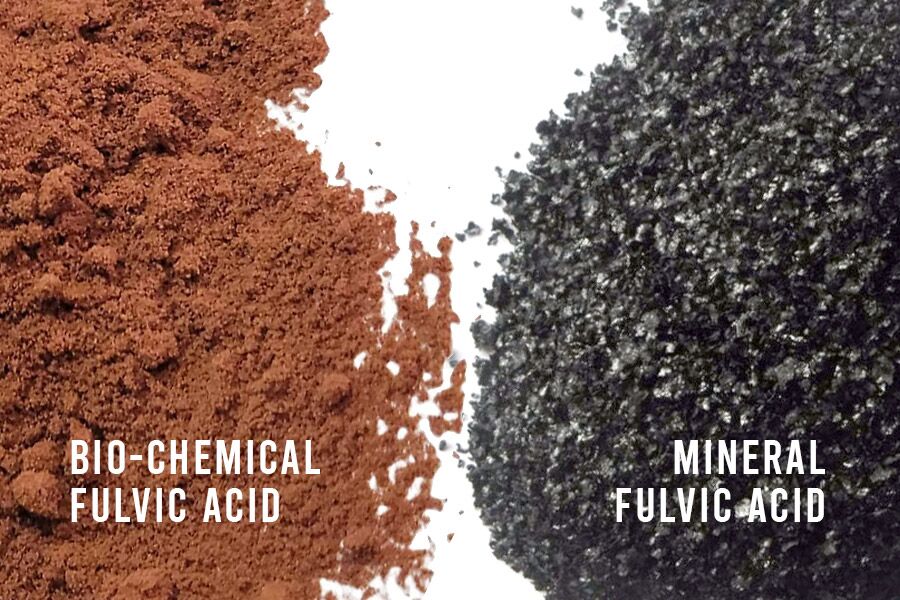
Decoding Potassium Fulvic Acid: Mineral vs Biochemical
Mineral potassium Fulvic Acid is very different from Bio-Chemical Fulvic Acid
In the realm of agricultural supplements, the distinction between mineral and biochemical potassium fulvic acid becomes a critical factor in determining their efficacy and applications.
At FarmTek Australia, we delve into the characteristics of these two variants, shedding light on their origins, appearances, and the nuanced benefits they bring to soil remediation and plant growth.

Mineral Potassium Fulvic Acid:
Mined from Leonardite, mineral potassium fulvic acid stands as an organic compound that undergoes a combination with potassium oxide, resulting in a relatively stable soil remediation product. The extraction process from natural deposits contributes to its mineral-rich composition.
Biochemical Potassium Fulvic Acid:
In contrast, biochemical potassium fulvic acid takes a different route, deriving from industrial products such as sugar alcohol and monosodium glutamate. Characterized by relatively fewer active functional groups and a higher presence of polysaccharides and lignins, this variant tends to absorb moisture readily, especially when exposed to higher temperatures.
Distinguishing Characteristics:
The visual appearance of the products serves as a straightforward method to distinguish between mineral and biochemical potassium fulvic acid. Biochemical fulvate typically exhibits a yellow hue, while its mineral counterpart manifests as black flakes or powder.
Comparative Benefits:
While both mineral and biochemical potassium fulvic acids share common benefits such as promoting root system development, improving soil condition, stimulating growth, and relieving stress, nuances in their applications and effectiveness emerge.
-
Enzyme Activity:
- Mineral Potassium Fulvate: Demonstrates a superior ability to promote the activity of enzymes. This attribute renders it particularly effective in enhancing cold and drought resistance in plants.
- Biochemical Potassium Fulvate: Though contributing to general plant health, it may not exhibit the same prowess in enzyme activation as its mineral counterpart.
-
Application Methods:
- Mineral Potassium Fulvate: Possesses a versatile nature, suitable for various applications like spraying and drip irrigation. Its high solubility in water, irrespective of pH levels, makes it a flexible choice.
- Biochemical Potassium Fulvate: Due to its physical characteristics, it may not be ideal for diluted applications through methods like spraying and drip irrigation.
FarmTek® BoosterPlus™ – A Mineral Source of Potassium Fulvate:
At FarmTek Australia, our BoosterPlus™ stands as a testament to the efficacy of mineral potassium fulvic acid. Derived from Leonardite, it not only proves to be cost-effective but also boasts ease of storage, handling, and application. With its 100% solubility in water at any pH level, BoosterPlus™ emerges as a versatile solution for enhancing soil conditions and promoting robust plant growth.
In conclusion, understanding the distinctions between mineral and biochemical potassium fulvic acid allows farmers to make informed choices based on their specific needs and the requirements of their agricultural practices. With FarmTek® BoosterPlus™ leading the way in providing a mineral-rich and efficient solution, farmers can navigate the complexities of soil remediation and plant care with confidence and precision.

